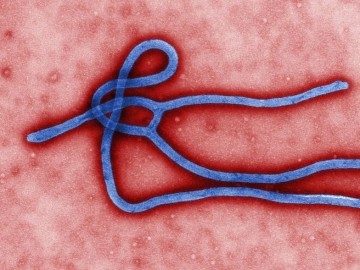NEW: Ebola Virus Can be Found in Male Semen 9 Months After Symptoms
Wednesday, October 14, 2015

“These results come at a critically important time, reminding us that while Ebola case numbers continue to plummet, Ebola survivors and their families continue to struggle with the effects of the disease. This study provides further evidence that survivors need continued, substantial support for the next 6 to 12 months to meet these challenges and to ensure their partners are not exposed to potential virus,” said Bruce Aylward, WHO Director-General’s Special Representative on the Ebola Response.
The report was published on Wednesday in the New England Journal of Medicine and provides the first results of a long-term study being jointly conducted by the Sierra Leone Ministry of Health and Sanitation, the World Health Organization and the U.S. Centers for Disease Control and Prevention.
The Study
The first phase of the study focused on testing Ebola virus in semen because of previous research showing persistence in that body fluid.
The study consisted of 93 men over the age of 18 from Freetown, Sierra Leone, provided a semen sample which was tested to detect the presence of Ebola virus genetic material. The men enrolled in the study between two and ten months after their illness began.
Men tested in the first three months after their illness began were all positive while over half of the men tested between four to six months after their illness began were positive while only one quarter of those tested between seven and nine months after their illness began also tested positive.
It remains unclear as to why some study participants had cleared the fragments of Ebola earlier than others.
“Ebola survivors face an increasing number of recognized health complications. This study provides important new information about the persistence of Ebola virus in semen and helps us make recommendations to survivors and their loved ones to help them stay healthy," said CDC Director Tom Frieden, M.D., M.P.H.
Precautions for Survivors
Until more research and information becomes available, over 8,000 Ebola survivors across three countries should seek education, counseling and appropriate testing to learn if Ebola still exists.
Until a male Ebola survivor's semen has twice tested negative, he should abstain from all types of sex or use condoms when participating in sexual activity. Hands should be washed after any physical contact with semen.
For more information, click here.
Related Articles
- Second Texas Healthcare Worker Tests Positive for Ebola
- UPDATE: CDC To Hold Press Conference After Portland Airport Ebola Scare
- Patient Tests Negative for Ebola, Fever Reduced
- Patient Hospitalized for Ebola Testing in Providence Milwaukie Hospital
- Ebola Takes Toll on Portland’s West Africans
- Is Portland prepared for an Ebola outbreak?
- CDC Says More in U.S. May Be Infected With Ebola




 Delivered Free Every
Delivered Free Every
Follow us on Pinterest Google + Facebook Twitter See It Read It